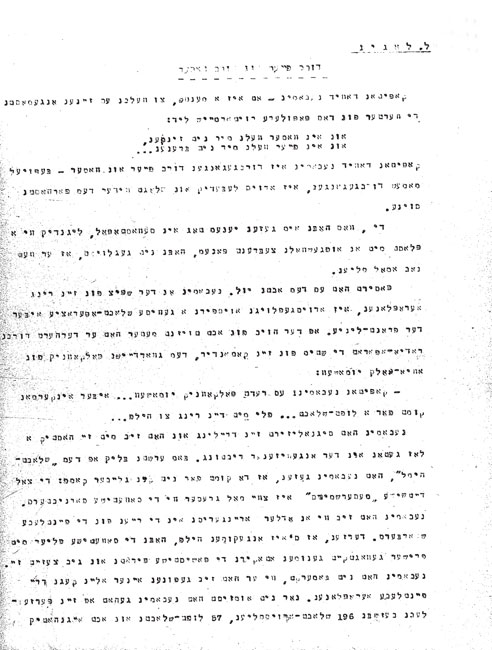David Nikhamin was born in 1913 in Vitebsk, Belorussia, into the family of a shoemaker. His first profession was that of locksmith.
At the end of the 1920s David Nikhamin moved to Leningrad, where he graduated from the rabfak (workers' high school) at the Leningrad Institute of Energy, and then completed the first year of study at the Institute. However, in 1932 he was sent to a three-year course for pilots in Lugansk, which he succeeded in finishing in a single year. By the beginning of the Soviet-German war on June 22, 1941, he was in command of a naval aviation squadron of the Soviet Black Sea Fleet.
During the war Nikhamin was involved in the fighting in Crimea. He was promoted to the rank of major. In June 1942, when Sevastopol was on the brink of surrender ring to the Germans, Nikhamin's plane was outnumbered by three German Messerschmitt jets. His plane was hit and he had to eject into the sea close to dangerous rocks. He was rescued by the Red Army sailors but, severely wounded, had to spend some time in hospital.
For his leadership of the squadron and for destroying 8 German jets in combat and 8 more on the ground Nikhamin was awarded the Order of Lenin. In September 1943 the commanders of the Black Sea Fleet recommended that he be decorated as a Hero of the Soviet Union but he was only awarded his second Order of the Red Banner. During the course of the war he was also decorated with Order of Suvorov, 3rd class, and the Order of the Patriotic War, 2nd class.
Colonel David Nikhamin retired from the Soviet army in 1960 and lived in Kharkov, Ukraine. In 1991 a war veteran activist from Sevastopol appealed to the government to finally award Nikhamin the title of Hero of the Soviet Union. However, it was too late. In that year the Soviet Union ceased to exist.
David Nikhamin died in 2000.
Lazar Lagin about David Nikhamin
Major Lazar Lagin (the penname of the well-known Soviet children's writer Lazar Ginzburg who was also born in Vitebsk) prepared for the Jewish Anti-fascist Committee the article "Major David Nekhamin from Vitebsk" that was sent to the Jewish press abroad. In his article Lagin noted what Nikhamin said to the doctor at the hospital where he was recovering after being wounded in July 1942:
"He told the doctor about his native city of Vitebsk and about the terrible slaughter of the Jews that the fascists killers carried out there, about his 15-year-old brother and 17-year-old sister, both of whom Hitler's murderers tortured to death, about all the atrocities that he had seen in various places….
The long, long account that he had with Hitler and his gang, the account for his elderly father, for his young brother and sister, for the thousands and tens of thousands of tortured brothers and sisters of his people, for the violated Jewish girls, for the women and children who were buried alive, for the old people who had been hung or shot to death, for those carried off to slave labor, for everything, for all of them…."
From: GARF 8114-1-465, copy YVA JM/26238.







